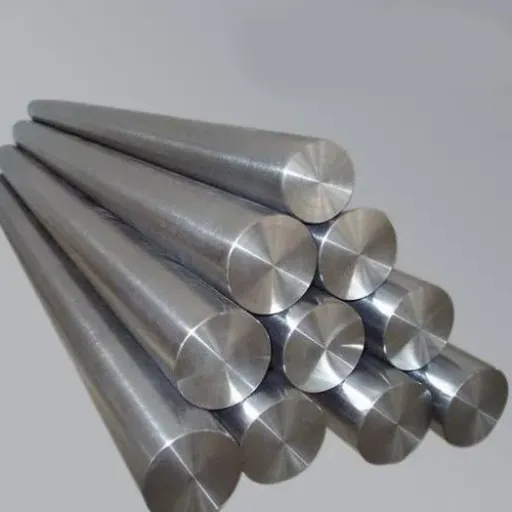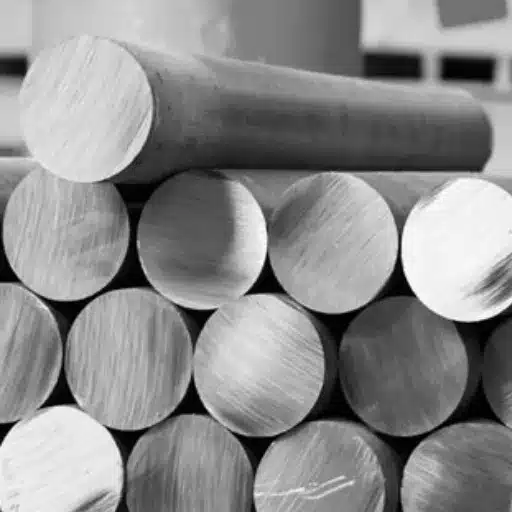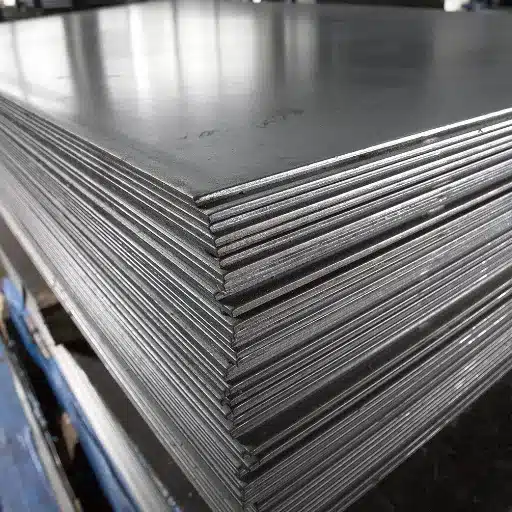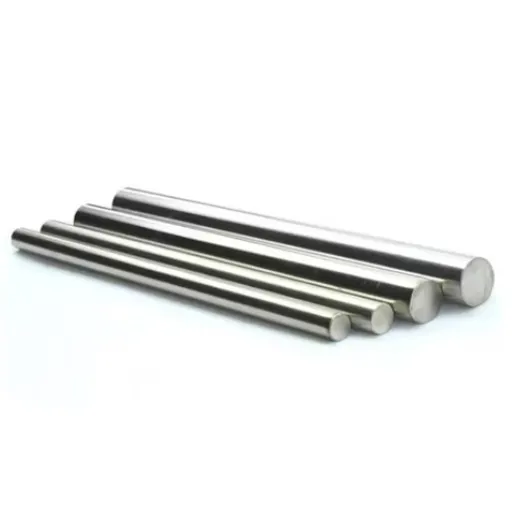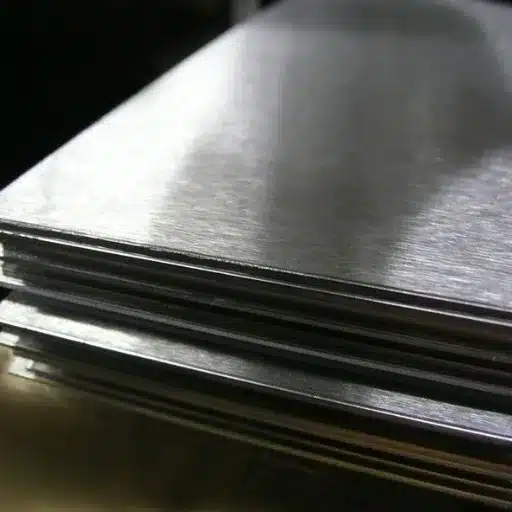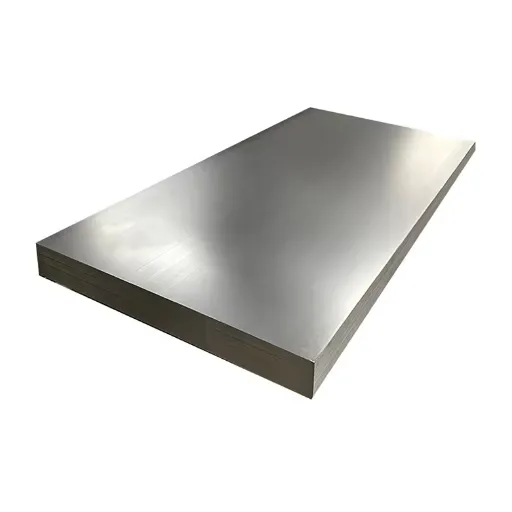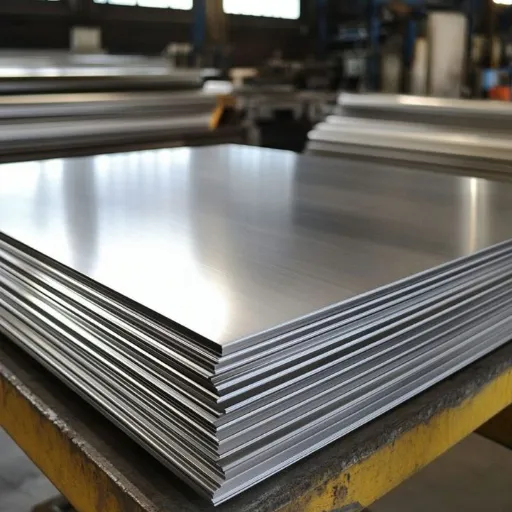Titanium is a material that impresses with its combination of remarkable strength, low weight, and high resistance to corroding effects. Among various titanium alloys, 6Al-4V also called Grade 5 titanium, is one of the most flexible and widely utilized. This article will highlight the incredible characteristics and uses of titanium round bars, rods, and stock in 6Al-4V options. It does not matter if the field of your project is aerospace, medical, or any other industry that requires working with exceptional materials in extreme conditions; you need to have the knowledge of this superlative material. Continue reading and see how 6Al-4V titanium can boost your next project.
Introduction to Titanium Round Bars
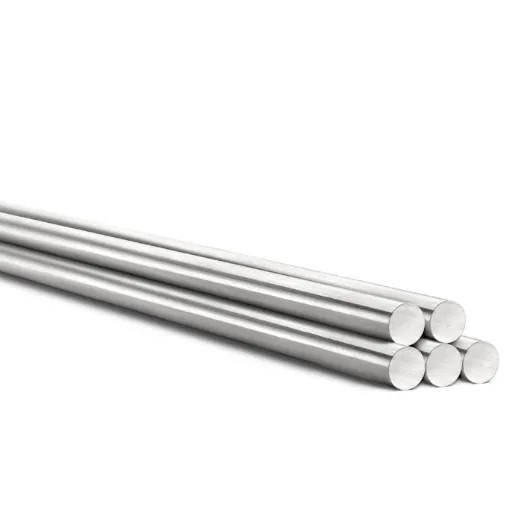
Titanium Round Bars: Definition and Overview
Titanium round bars are the circular and solid forms of the metal that are usually made from titanium—the metal that is very light, very strong, and very difficult to corrode and that is even more so very safe in medical applications as it is biologically compatible. One of the most frequently used titanium alloys is the Grade 5, which is also known as 6Al-4V. This alloy includes 90% titanium, 6% aluminum, and 4% vanadium; thus it has an excellent combination of high strength, good ductility, and a wide range of resistance to the harshest environments.
Titanium round bars are not only strong but also they can be used in many different ways and thus they are very much appreciated in many industries. For instance, in the 6Al-4V used in the aerospace sector, the titanium is being processed into the structural parts, fasteners, and engine parts, where the combination of being lightweight and very strong is of utmost importance. Likewise, in the medical field, titanium’s biocompatibility is a major contributing factor in the development of surgical implants and prosthetics that, as a result, are not only safe but also long-lasting.
Titanium’s role in modern manufacturing is still very significant
Titanium is such a metal that has a very good combination of properties that are a little bit better than others i.e. it has a very high strength, very low density, and resistance to high and low temperatures. The size of the global titanium market was about USD 25.6 billion in 2022 and it is supposed to get to be more than USD 40 billion by 2030. The main reason driving this up is the use of titanium in different industries like aerospace, automotive, construction, and medical devices. Titanium is still the best material to use where weight is a crucial factor in determining the performance of aircraft and the other aircraft need to be very durable and less subjected to the use of higher maintenance costs. For example, in the case of a state-of-the-art aircraft almost 15% of its entire weight comprises of titanium that is feeding better fuel consumption in a very stressful condition because of the lifespan left after that.
Moreover, the metal’s compatibility with living systems makes it necessary in the medical sector, especially where titanium is used to make implants, prosthetics, and surgical instruments. Market research has shown that the medical titanium market will grow at a CAGR of 8.5% through this decade, indicating the increasing dependency on scientific materials for healthcare innovation. On top of that, titanium is also a part of clean energy projects – such as wind energy, reverse osmosis, and even hydrogen storage – thus, it is seen as a key element in the quest for sustainable development worldwide. These factors all point towards the material’s versatility and its continued importance in the changing industrial landscape.
Key Properties of Titanium Round Bars
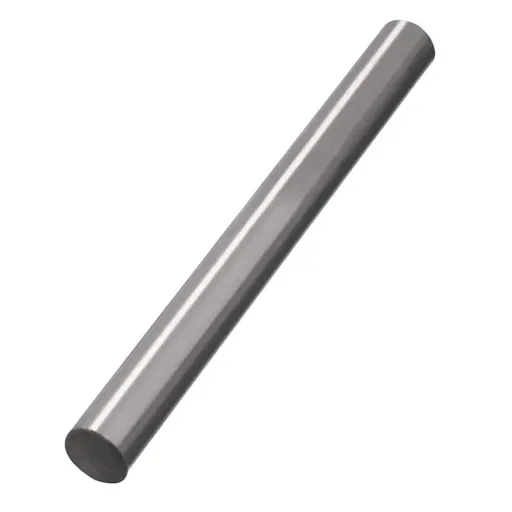
Mechanical Properties: Strength and Durability
Alloyed titanium, particularly the 6Al-4V variant, showcases remarkable qualities of strength and durability, making it an absolute necessity in high-performance applications. The range for tensile strength of titanium alloys is usually from 895 MPa (130,000 psi) to 1,200 MPa (174,000 psi) but varies with the alloy and heat treatment process specified. High tensile strength of this order means that titanium can take up very high stress without permanently changing its shape.
Apart from tensile strength, the titanium alloys have excellent resistance to fatigue which helps them to keep being excellent under stresses of repeated mechanical loading. This property is of prime importance in the case of components in the aerospace industry, which are always being forced and subjected to various kinds of force cycles. Yield strength, another major property, generally goes beyond 827 MPa (120,000 psi) in alloys like 6Al-4V and that is the reason the material is able to take high stress without yielding.
Corrosion Resistance and Heat Tolerance
Titanium’s remarkable resistance to corrosion is one of its most important features, thus it is the best material to use in situations where there are aggressive environments. In fact, the material develops a passive oxide layer on its surface which plays the role of a shielding wall against oxidation and corrosion in different environments including seawater, chlorides, and strong acids. Thus, titanium may be seen as having the ability to age gracefully in a harsh environment, which is an essential quality in industries like marine engineering and chemical processing. Research has even demonstrated that titanium can tolerate corrosion at pH levels ranging from 3 to 11, thereby ensuring its durability in extreme acidic or alkaline conditions.
In addition to that, titanium is a very good heat conductor. It keeps its mechanical properties even when heated to 600°C (1112°F), which is way above the range of most conventional metals. Recent developments have pointed out its role in high-temperature applications such as parts of jet engines, exhaust systems, and heat exchangers where maintaining structural integrity under thermal stress is very important. By virtue of its exceptional combination of characteristics, such as the non-existent corrosion resistance and heat tolerance, titanium continues to be the ultimate material for performance in difficult conditions.
Applications of Titanium Round Rods
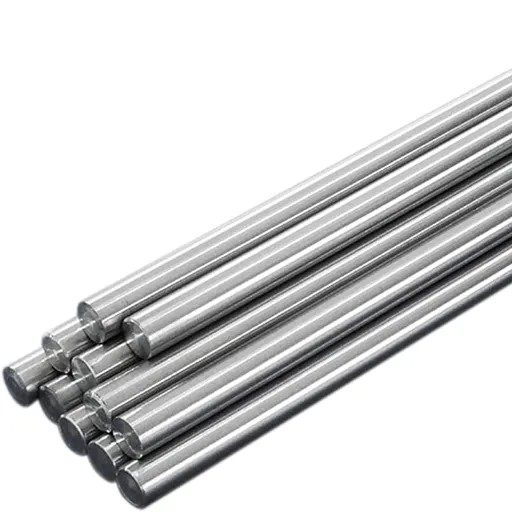
Use in Aerospace Industries
Titanium round rods are heavily relied upon in the aerospace sector and recognized for their outstanding features, including lightness paired with high strength, corrosion resistance, and high-temperature usability. The manufacturers of modern aircraft consider titanium among the top materials for engine parts, structural frames, landing gear, and other crucial applications. As per the latest information, titanium accounts for around 15% of an aircraft’s total weight, but there are instances of even higher percentages of this metal being present in megastructures like the Boeing 787 Dreamliner.
The trade-off of titanium in aerospace is its unparalleled ability to survive under the harshest conditions and at the same time, cut down on weight so that major benefits as fuel saving and reduced operating costs can be realized. Besides, titanium’s corrosion resistance in the presence of such factors as humidity or saltwater is yet another reason why it is the common choice for aircrafts, both military and civil. The metal’s unproblematic bonding with the composite materials also aids its place in the latest aircraft design.
Applications in Medical Devices
Titanium round rods with their excellent biocompatibility, resistance to corrosion, and strength-to-weight ratio have become the main material for developing modern medical devices, and their application is a few. These characteristics favor titanium in the production of implants, surgical instruments, and prosthetics. For instance, the metal is extensively utilized in the manufacture of replacement joints devices, like hip and knee implants, as it fuses nicely with human bone and creates no toxicity. Additionally, titanium-made dental implants have posted success rates of over 95%, which attests to its effectiveness in the long-term application of medicine.
The size of the market for titanium in medical devices worldwide is expected to get big and may reach more than $3 billion by the year 2030 according to some forecasts. The major drivers of this growth are rising healthcare demands, aging populations, and cutting-edge medical technology mandates for durable and lightweight materials. Moreover, the ability of titanium rods to endure sterilization cycles without losing their mechanical properties makes them indispensable in surgical areas where cleanliness and accuracy are of utmost importance. The continual dependence on titanium reaffirms its vital position in making healthcare solutions available to people across the globe.
Advantages of Titanium Alloy Bars Over Other Metals
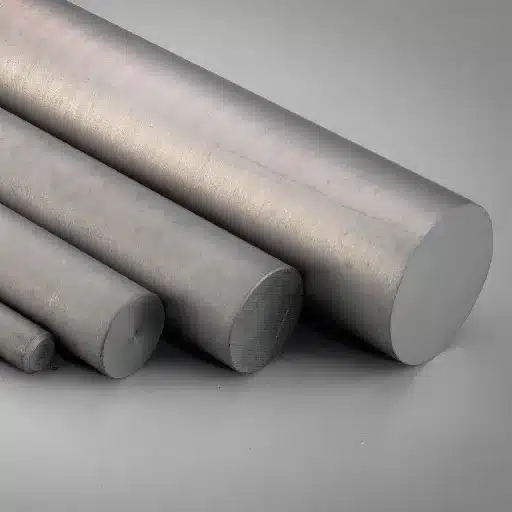
Comparative Analysis with Steel and Aluminum
Titanium alloy bars are the ones that have the most unique properties in comparison to steel and aluminio. One of titanium’s properties that is very much talked about and praised is its high strength-to-weight ratio. For instance, titanium weighs only about 55% less than steel and at the same time, it is very strong and sometimes even stronger than steel. This is exactly why it is extensively used in aerospace and automotive design that demand weight reduction. Aluminum, on the other hand, is just a bit lighter than titanium but its strength and resistance to corrosion cannot be compared to that of titanium.
In the case of corrosion resistance, titanium beats steel and aluminum hands down. The only way to make steel get rid of its rust problem is to apply protective coatings or produce stainless steel, while on the flip side, aluminum might succumb to pitting in marine settings. To talk of titanium, it has the stronghold of a naturally occurring oxide layer that also acts as a corrosion shield for titanium even in the most aggressive places like the seas and chemical factories.
📊 Material Comparison Overview
| Property | Titanium | Steel | Aluminum |
|---|---|---|---|
| Weight Advantage | 55% lighter than steel | Heaviest option | Lighter than titanium |
| Strength | Equal or superior | High strength | Lower strength |
| Corrosion Resistance | Natural oxide layer protection | Requires protective coatings | Susceptible to pitting |
Lightweight and High Strength Benefits
The use of titanium as a material has the distinct advantage of strengthening while at the same time reducing weight. Its high strength-to-weight ratio makes it the first choice of industries like aerospace, automotive, and medical applications where the performance and efficiency mantra is strictly followed. Titanium weighs around 55% less than steel but there is no difference in the strength it offers for some applications or even better in the case of some applications. Take for instance the density of titanium which is around 4.5 g/cm³ while steel’s density is between 7.85 g/cm³ and 8.05 g/cm³, so we can first notice the significant weight difference.
Not only is titanium light, but it also boasts superior tensile strength. Pure titanium has a tensile strength of around 275-700 MPa, while titanium alloys can exceed 1,000 MPa. This makes it highly reliable in applications requiring durability under stress, such as jet engine components or high-performance bicycle frames. Furthermore, titanium also maintains its strength-to-weight advantage at high temperatures, which is a crucial factor in aerospace engineering.
Recent Innovations in Titanium Bar Manufacturing
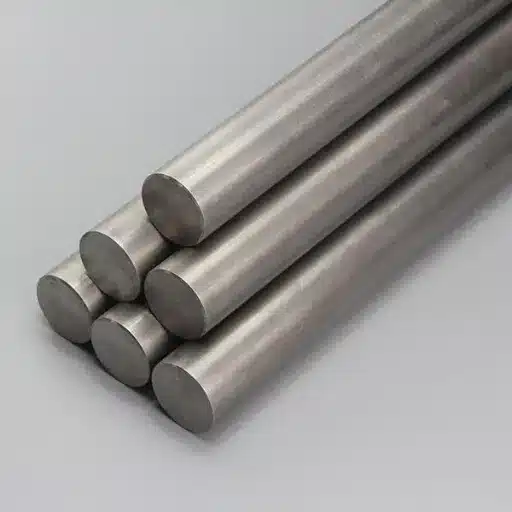
Alloy Composition
The recent progressions in titanium alloys’ composition have drastically changed their use in multiple industries. The focus of the scientists and the engineers has been to promote the characteristics of the titanium by adding such new alloying elements as aluminum, vanadium, molybdenum, and zirconium. The most popular, for instance, is the Ti-6Al-4V alloy which consists of 6% aluminum and 4% vanadium, has been already and will continue to be used in aerospace and biomedical sectors because of its high strength-to-weight ratio, corrosion and also its body-friendly nature.
The innovations in alloy composition have gone a step further, the development of beta-titanium alloys, which are not only resistant to fatigue but also exhibit remarkable flexibility, has been one of the prime accomplishments. The very characteristics of the beta-titanium alloys make them perfectly suitable for medical implants like orthopedic devices and dental applications. Moreover, recent times have witnessed research that has led to the introduction of titanium aluminides (TiAl) with regard to heat resistance and these materials are slowly warming up to the use in automotive and aerospace engine parts and components that are subject to the extremes of temperatures only.
Production Processes
The modernization and the improvements of the technologies in titanium production and processing have brought about radical changes in the processes and at the same time, the efficiency, accuracy, and sustainability of the processes have gone up. One of the most important and revolutionary changes has been the introduction of additive manufacturing, or shortly AM, which is also known as 3D printing, that allows the making of sophisticated titanium pieces while generating very little material waste. The research conducted by MarketsandMarkets determined that the 3D printing market in the aerospace and defense industry (the primary titanium consumer) was approximately $1.9 billion in 2021 and is expected to double and reach $4.3 billion by 2026 with a CAGR of 18%.
Another technological breakthrough was the use of plasma arc melting, which among other things, produces very high-purity titanium. This is accomplished through the very efficient removal of impurities. One of the requirements for the aviation and biomedical applications being microstructural consistency and this method does guarantee excellent microstructural consistency. Likewise, the powder metallurgy advances have empowered the production of custom-made titanium alloys with predetermined grain sizes and improved mechanical properties thus facilitating their positioning in the automotive and energy sectors.
Reference Sources
-
Verified Market Reports
- Title: Titanium Alloy Bar Market Size, Research, Share & Forecast
- Key Insights: This source highlights the dominance of the aerospace and defense industries in the titanium alloy bar market, providing data on market revenue and applications.
- Link: Verified Market Reports
-
LinkedIn Article
- Title: Titanium Alloy Bar Market Future Outlook, Segmentation
- Key Insights: Discusses market segmentation based on demographics, geography, product type, application, and end-user, offering a comprehensive view of the target audience.
- Link: LinkedIn Article
-
HST Titanium News
- Title: Medical Titanium Alloy Bar Market Analysis
- Key Insights: Focuses on the medical industry’s use of titanium alloy bars, emphasizing their growth and applications in implants and surgical tools.
- Link: HST Titanium News
Frequently Asked Questions (FAQs)
❓ What are the common grades of titanium bars?
Common titanium bar grades are represented by grade 2, which is the so-called commercially pure titanium, and grade 5, the alpha-beta alloy with the best strength-to-weight ratio. Besides, other grades may be employed specific for applications and properties, such as grade 23, which is also used for medical purposes.
📏 What are the dimensions available for titanium bar stock?
Titanium bars are stocked in different dimensions, for instance, different lengths and diameters. The standard lengths usually range from a few inches to several feet, whereas the diameter can be very different, generally from a few millimeters to inches, depending on the application and requirements.
🏭 How is titanium bar stock manufactured?
Different manufacturing processes such as forging, extrusion, and rolling are used for producing titanium bar stock. These methods allow creating titanium in different forms like round bars, flat bars, and square bars. The process of manufacturing can affect the mechanical properties of the titanium like its strength and ductility.
🔧 What applications are suitable for titanium alloy bars?
Titanium alloy bars are applied in a number of different industries like aerospace, medical, and marine. And the main reason is their excellent strength, low weight, and corrosion resistance which are ideal for aircraft frames, medical implants, and marine hardware.
🛒 Can I buy titanium round bars online?
Yes, titanium round bars can be purchased online from various suppliers. A wide range of titanium products such as round bars, plates, and blocks in different grades and dimensions are offered by many manufacturers. Just make sure to select a trustworthy supplier that offers quality assurance and certifications like AMS-4928.

